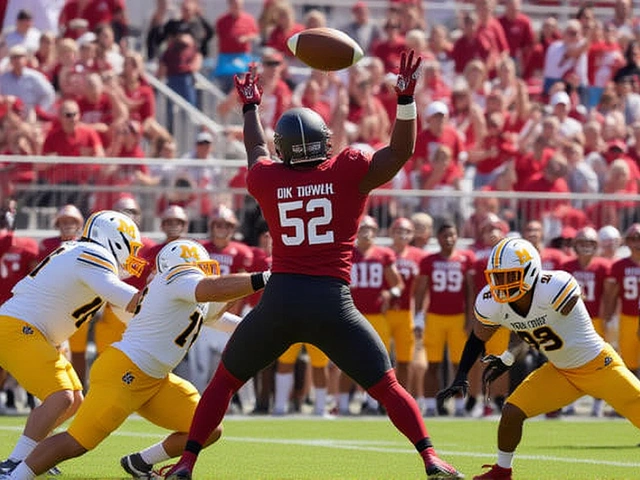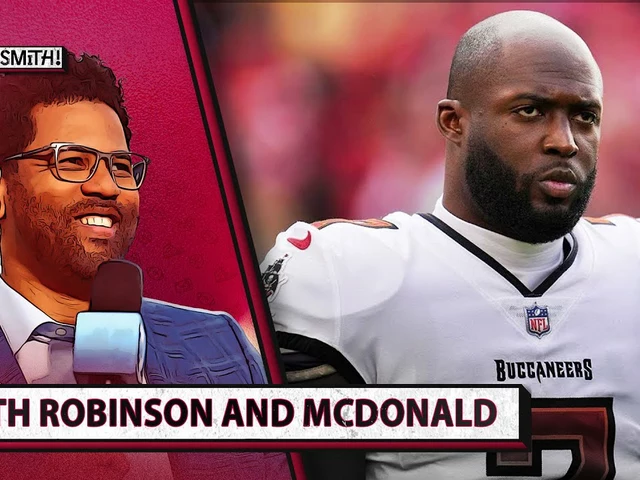Exploring the Reasons Behind the Short NFL Season
The National Football League (NFL) season is short compared to many other professional sports leagues. The regular season typically consists of 16 games, and the playoffs add another three or four games, depending on if a team makes it to the Super Bowl. So why is the NFL season so short compared to other professional sports? In this blog section, we'll explore the reasons behind the short NFL season.One of the major reasons for the short NFL season is the physical toll that the game takes on players. Football is a highly physical sport and the physical demands of playing a full 16-game season are immense. This is especially true for offensive and defensive linemen, who are constantly in contact with one another, making it difficult to stay healthy over the course of the season. As a result, the NFL has found it necessary to limit the number of games in order to keep players healthy and performing at their best.
Another reason why the NFL season is so short is the length of the playoffs. The NFL playoffs consist of three or four rounds, depending on if a team makes it to the Super Bowl. This means that teams can potentially play as many as 20 games in a season. If the regular season was any longer, teams would be playing too many games and risking injury to their players.
Finally, the NFL is also a business. The league needs to make money, and if the season were too long, it would be difficult to keep fans interested. Shortening the season means that each game has more significance and fans are more likely to tune in. This ensures that the league will continue to make money and be able to sustain itself in the long run.
The NFL season is short for a number of reasons, but the biggest factor is the physical demands that the game places on its players. The league has to make sure that players are healthy and able to perform at their best, and limiting the number of games is the best way to do that. Additionally, the length of the playoffs and the need to make money are other factors that have led to the short NFL season.
Examining the Pros and Cons of the NFL’s Short Season
The NFL season is one of the shortest in professional sports, with each team playing just 16 regular season games. This short season length raises an important question: why is the NFL season so short? Unfortunately, there is no simple answer to this question. The NFL season is short for a variety of reasons, and each of these reasons carries with it both pros and cons.One of the primary reasons why the NFL season is so short is because the league wants to limit the wear and tear on players’ bodies. The physicality of the game and the sheer number of games makes it difficult for players to stay healthy, and the NFL wants to ensure that all players are in the best physical condition possible. This limited regular season also gives teams more time to focus on the playoff picture and build for the future, and it also allows for more time for teams to rest and recuperate after long seasons and playoff runs. Of course, this short season also means that the NFL season is extremely competitive, and that teams are only one or two bad games from being out of playoff contention.
On the other hand, there are some drawbacks to the NFL’s short season. For one, the shorter season means that there is less time for teams to develop players and build chemistry. Teams are also limited in the number of games they can play in order to compete for a championship, which means that there are fewer opportunities for teams to make up for losses and mistakes. Additionally, the short season means that fans don’t get to see their favorite teams as often, which can lead to a decrease in attendance and viewership.
Ultimately, the NFL season is short for a variety of reasons, and each of these reasons has both pros and cons. While the short season helps to keep players healthier, it also limits teams’ opportunities to compete for a championship and can lead to decreased viewership. Ultimately, the decision to keep the NFL season short is a difficult one that requires careful consideration and analysis.
Investigating the Impact of the Short NFL Season on Players and Fans
The National Football League (NFL) season is one of the shortest professional sports seasons in the United States. With only seventeen weeks of regular season play and three weeks of playoffs, the NFL season is significantly shorter than most other major sports leagues. As a result, this short season has a significant impact on both players and fans.From a player's perspective, the short season means that they must be in top physical shape for a longer portion of the year. The NFL season officially starts in late July and lasts through the Super Bowl in early February. During this time, players must be in peak physical condition to be able to compete at the highest level. This often means that players must devote extra time to their training and conditioning, which can be physically and mentally taxing.
From a fan's perspective, the short season can make it difficult to stay invested in the league. There are only sixteen regular season games, and with the season lasting only four months, fans may find it difficult to stay interested in the league. Additionally, the short season may mean that teams have to cram their regular season games into a condensed period of time. This can make it difficult for fans to attend games or keep up with the latest news.
The NFL season is short, but it has a major impact on players and fans alike. Players must be in peak physical condition for a longer portion of the year, while fans may find it difficult to stay engaged with the league. Despite the challenges of a short season, the NFL continues to be one of the most popular sports leagues in the world.
Understanding the Economics of the NFL’s Short Season
The National Football League (NFL) season is much shorter than other professional sports seasons, with only 16 regular season games. This is done for a variety of reasons, the most important of which is the economics of the NFL.The NFL is the most profitable sports league in the world, and the league is well aware of the fact that the longer a season goes on, the more money it makes. However, the league also understands that there is a diminishing return when it comes to expanding seasons. As the season gets longer and longer, teams and players are more likely to suffer injuries and fatigue, and the overall quality of the game can suffer as a result.
In addition, the NFL is also aware that fans may become less interested in the product if the season is too long. Fans are more likely to tune into the games when they are spread out over a shorter period of time. This helps to keep the fan base engaged and increase viewership.
Finally, the NFL season is short in order to minimize player injuries and keep players healthy. The NFL is very aware of the potential for player injuries and tries to minimize the risk of injury by having a shorter season. This helps to keep the players in good physical condition and helps to maintain the quality of the game.
In conclusion, the NFL season is short for a variety of reasons, but the most important is the economics of the league. The NFL is well aware of the potential benefits of a longer season, but also understands the risks associated with it. The league has chosen to keep the season short in order to maximize profits and protect the players from potential injuries.
Analyzing the Strategic Advantages of the Shorter NFL Season
The NFL season is only 17 weeks long, and while that may seem short compared to other major sports leagues, there are a number of strategic advantages to its short season length. In this blog section, we’ll analyze some of the advantages that the NFL gains from having a shorter season than its competitors.One major strategic advantage of the shorter NFL season is that it allows for a greater focus on the important games. With only 17 weeks to play, the league is able to schedule many more meaningful games than with a longer season. This allows for more meaningful rivalries and more exciting match-ups. Furthermore, the shorter season allows for more rest for the players, which helps with injury prevention and allows for a more competitive product on the field.
Another advantage of the shorter season is that it allows for more parity in the league. With less time to make up ground, teams have less room to make up for mistakes. This means that teams that get off to a slow start have a much harder time making the playoffs than in a longer season, which helps keep the league competitive.
Finally, the shorter season allows for more time to prepare for the postseason. With only 17 weeks to play, teams have more time to rest and prepare for the playoffs. This allows teams to be more competitive in the playoffs, and helps ensure that the best team will come out on top.
Overall, the shorter NFL season provides a number of strategic advantages for the league. It allows for greater focus on important games, more parity in the league, and more time to prepare for the postseason. As such, the NFL season is the perfect length to ensure that the league remains competitive and entertaining.
Comparing the NFL’s Short Season to Other Professional Sports Leagues
The National Football League (NFL) season is the shortest of all the major professional sports leagues in the United States. While the NBA, NHL, and MLB all have seasons that last around six months, the NFL season is only four months long. So why is the NFL season so short compared to other professional sports leagues?The main reason why the NFL season is so short is because it is the most physical of the major professional sports leagues. Football is a sport that involves a lot of contact, and injuries can happen more often than in other sports. To help reduce the risk of injury, the NFL has implemented a much shorter season than other professional sports leagues. This helps to ensure that players are able to stay healthy throughout the season and that there is enough time for teams to recover from any injuries that occur.
Another reason why the NFL season is so short is because of the intense playoff system that the league uses. The NFL playoffs are much more competitive than those of other professional sports leagues, as teams must win multiple games in order to advance. This makes the regular season even shorter since teams need to win more games in order to qualify for the playoffs.
Finally, the NFL season is short because of the large number of games that teams have to play. The NFL regular season is only 16 games long, compared to the 82 games that NBA teams play or the 162 games that MLB teams play. This means that the NFL season is much more condensed than other professional sports leagues, and teams must be ready to play each week in order to have a chance to make the playoffs.
Overall, the NFL season is much shorter than other professional sports leagues due to a variety of factors. The physical nature of the game, the intense playoffs, and the condensed regular season all contribute to why the NFL season is so short. Despite its short season, the NFL is still one of the most popular sports leagues in the United States and around the world.





